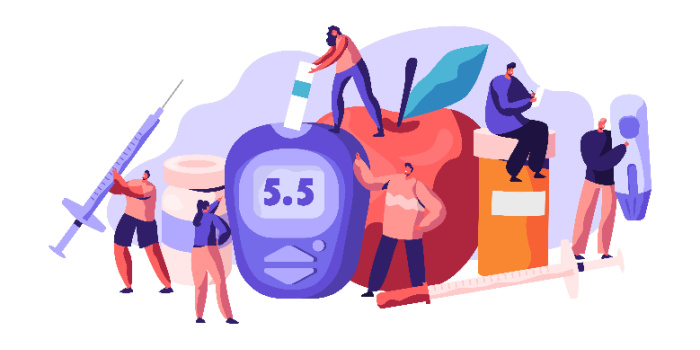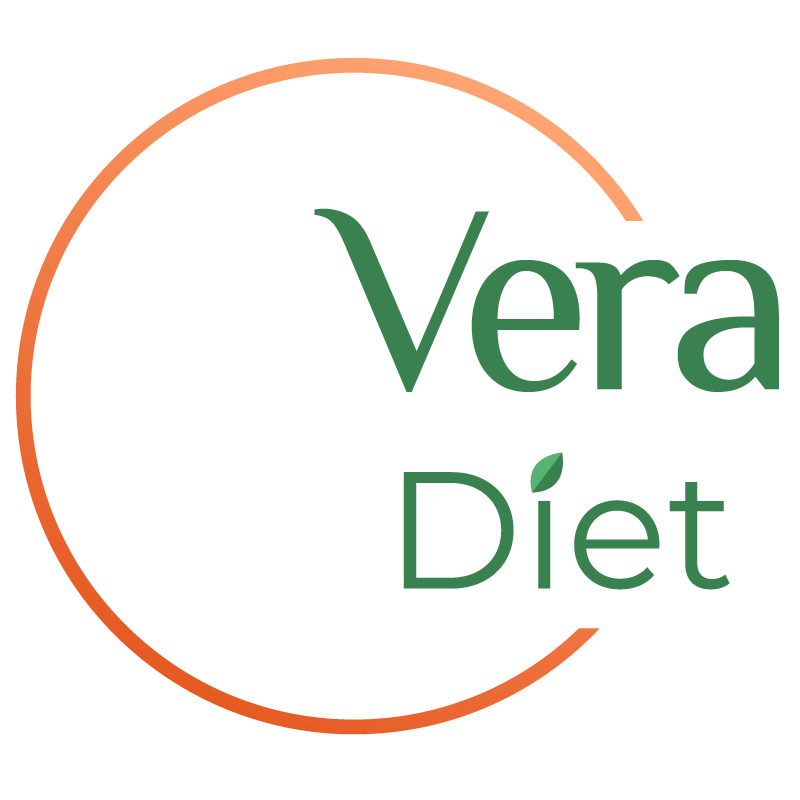When to consult a registered dietitian?
Not sure when to consult a dietitian? The top reasons to see an RD include a healthy balanced diet, weight loss, weight gain, digestive issues like IBS as well as nutrition-related health conditions like diabetes or high cholesterol.
You can consult me for nutrition-related issues mentioned down-below. If you’d like to consult me for a different reason or health condition, don’t hesitate to contact me.
Balanced diet
keyboard_arrow_upA balanced diet offers a variety of simple tools to cover your body’s needs, obviously taking into account your lifestyle and preferences. As there is A LOT of misinformation about food, the goal is to be able to uncover it together. During the session we will discuss different food groups and you will understand what our body needs them for. At the end of the session we will identify points to improve in your diet and set achievable goals to get a healthy and sustainable balanced diet.
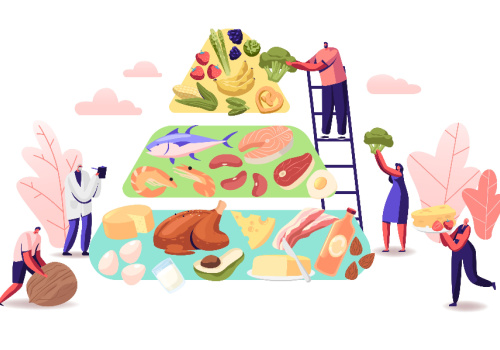
Weight loss
keyboard_arrow_upOverweight, obesity, a simply a desire to lose a few kilos to fit into the wedding dress? No worries. There are tools to lose weight in a sustainable and gentle way. A sustainable weight loss starts with a personalized balanced diet with a slight calorie deficit. This approach makes it possible to cover all the needs of the body without drastic restrictions. During the consultations, we will learn the basics of a balanced diet, then we will focus on hunger and satiety cues and on changing eating habits to lose weight for good.
No restrictive diets? Absolutely none, today we know that restrictive dieting doesn’t work in long term. In most cases, people regain the lost weight and even gain more compared to the starting point, sometimes having to face some real health problems. It is actually essential to keep all the food groups and your favorite foods to achieve long-term weight loss.
How many kilos can I lose? This is the question I often hear from my patients. A decrease in 1 to 3 kg per month is optimal to avoid the yo-yo effect. But everyone goes at their own pace, there is no right or wrong answer. I would like to prove to you that it is possible to eat everything and lose weight smoothly. But I want to emphasize that the body has its limits and that we must respect them.
Will I have a meal plan to follow? No, you will have to learn how to nourish yourself with balance and variety. But don’t worry, I’ll be there to guide and support you. When needed I share recipe ideas and practical tips with my patients. In addition, I offer a food diary in the form of a shared file that you can fill in become more aware of food balance but also of physical sensations, stress and emotions related to food. And great news for my current and future patients! The FEEL journal will soon replace these files. It is an unprecedented application that will make logging even easier and teach you how to eat a balanced diet AND listen to your body.
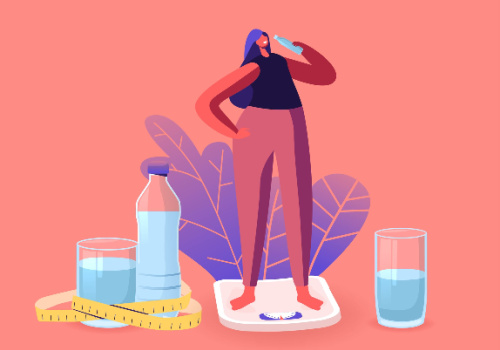
Pregnancy and nutrition
keyboard_arrow_upNutrition during pregnancy can be scary. One might wonder if it is nutritious and safe enough for the future baby? Or too much weight gain or even weight loss can be a source of additional stress. Nonetheless, gestational diabetes is indeed to be taken seriously. Don’t worry, a diet adapted to your needs and those of the future baby is possible! Of course, no restrictive diets, but lots of tips and tools to improve the quality of your diet. And for gestational diabetes I recommend a diet with a low glycemic index which is very effective but not easy to put in place alone. So I simplify it for you thanks to the simple and practical tips.
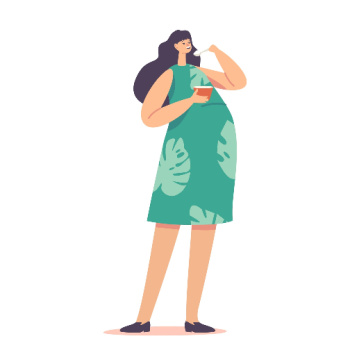
Irritable bowel syndrome
keyboard_arrow_upIrritable bowel syndrome or IBS is a very uncomfortable and often painful condition. The most common symptoms are frequent diarrhea or constipation or a mix of both, often accompanied by severe bloating and intestinal pain. And the worst is that there is no medicine to cure this syndrome. But there is very good news! 3 out of 4 people with IBS are significantly relieved by a low-FODMAP diet! The abbreviation FODMAPs refers to the set of fermentable foods in the colon that cause the unpleasant symptoms. These foods contain carbohydrates (fiber) that our body is not able to digest, but our microbiota, i.e. the intestinal flora can.
A low FODMAP diet is a truly restrictive diet but it is meant to be only temporary. It consists of 3 stages.
- The first stage is elimination of all fermentable foods, which lasts an average of 4 weeks.
- The second stage is gradual reintroduction of these foods which can last up to 2 months.
- And the third step is adapting your diet based on the results.
Being a restrictive therapeutic diet, I strongly advise to have a dietitian`s support to go through it. This way you will be able to avoid frustrations, mistakes and get necessary support to go to till the end of a low FODMAPs diet in order to improve your quality of life.
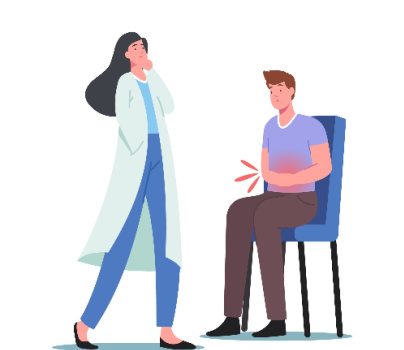
Healthy vegan diet
keyboard_arrow_upA balanced vegan diet can be very beneficial for adults. However, this type of diet requires additional attention to get most of it without compromising your health. Indeed, the vegan diet has many health benefits, which I discuss in my article here. But you can’t simply remove all animal products to call it a healthy vegan diet, you need to know what to replace them with. There are also certain vitamins found only in animal products, for example vitamin B12 supplementation is essential.
During consultations, we will discuss a balanced diet for you, but in a vegan version. I recommend to my patients to gradually reduce the amount of animal products in their diet, to give their bodies time to adapt . If you decide to switch to a healthy vegan diet for whatever reason, I’ll be there to guide you through the transition.

Weight gain
keyboard_arrow_upLow body mass index can be associated with fragility and increased fatigue. But even without symptoms, weight gain is a perfectly valid reason for consultation. The problem is that sometimes weight gain requires more effort and organization than weight loss. Weight gain is also based on a balanced diet, because the aim is not to eat unbalanced and unhealthy, but to respect the body’s needs and consolidate health. I’ll be happy to support you and help you succeed.
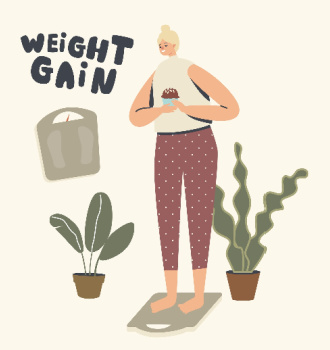
Couples consultations
keyboard_arrow_upCouples’ consultations are getting more and more popular. But I’d like to emphasize that a couple’s consultation is not two separate consultations in a row. This type of consultation is really intended for couples or small families who live together and share their daily routine. During a couple’s consultation we can address the goals of each person, but also find a common ground to reach these goals.
During follow-up consultations we focus on the practical and organizational aspects, while ensuring that you enjoy your meals. Thanks to meal prep and other practical tips, you’ll improve the nutrition and health of your household. If you live with someone and you both want to have a more balanced and nutritious diet, or if you have another food-related issue, I’d recommend you to pick a couple’s consultation.

Health conditions
keyboard_arrow_upYou can also consult me for some health conditions including:
- type 2 diabetes
- malnutrition, including elderly people
- cardiovascular issues (high cholesterol and triglyceride levels)
- inflammatory bowel diseases
- food intolerances
Each condition requires a specific diet that takes into account the person’s lifestyle. With proper dietitian’s support everyone can adopt a specific diet without much restriction.
